|
||||||||
|
|
|
2018-11-17 ArtNo.46459
◆Review:The baptism of the Holy Spirit (Guiding and Aiding Living Beings)
 Judas Iscariot is synonymous with 'betrayal' that he handed Jesus over to the Romans and crucified him, but there are many mysterious points about his treachery. Typical examples are the following three points. "Yet there are some of you who do not believe." For Jesus had known from the beginning which of them did not believe and who would betray him. (John 6:64) "I am not referring to all of you; I know those I have chosen. But this is to fulfill the scripture: 'He who shares my bread has lifted up his heel against me.'" (John 13:18) Jesus said to them, "I tell you the truth, at the renewal of all things, when the Son of Man sits on his glorious throne, you who have followed me will also sit on twelve thrones, judging the twelve tribes of Israel. (Matt 19:28) ---- ---- ---- ○The story of Judas is contrived: a retired bishop of the Episcopal Church 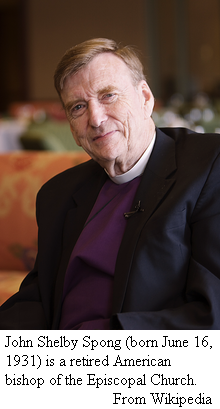 The earliest possible allusion to Judas comes from the First Epistle to the Corinthians 11:23-24, in which Paul the Apostle uses the passive voice of the Greek word 'paradidōmi', which most Bible translations render as 'was betrayed': "On the night when he was betrayed, the Lord Jesus took some bread and gave thanks to God for it. Then he broke it in pieces and said, 'This is my body, which is given for you. Do this in remembrance of me.'" The word 'paradidōmi' can be translated as 'was handed over,' It could refer to God metaphorically 'handing Jesus over' to the Romans. (English version Wikipedia) Paul repeatedly refers to the "Twelve Apostles" in his letters. If Paul knew that Jesus had been betrayed by one of the Twelve Apostles, that is, Judas, why did not Paul mention the name of Judas in his many letters? According to pastor John Shelby Spong, who is a retired American bishop of the Episcopal Church and a visiting lecturer at Harvard Divinity School, etc., "The whole story of Judas has the feeling of being contrived ... The act of betrayal by a member of the twelve disciples is not found in the earliest Christian writings. Judas is first placed into the Christian story by the Gospel of Mark (3:19)." There is a description in 'Acts of the Apostles,' which was written afterwards, that the disciples of Jesus drew lots and chose Matthias as the twelfth apostle which had become vacant due to Judas' dropout. (Acts 1:15-26) It seems that the unnaturalness and contradiction of the story of Judas' betrayal reflects the twists and turns of the process of establishment of this story. ○High Priest Caiaphas' ambition 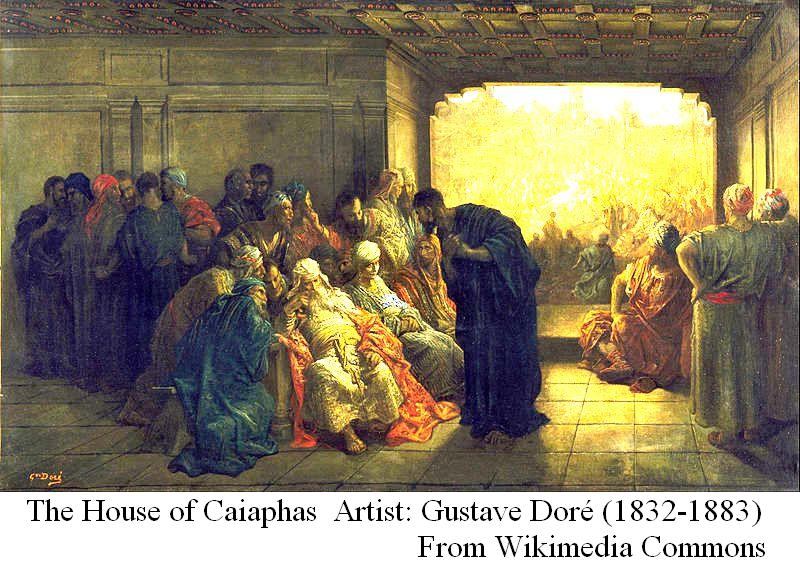 It all started with a tidal wave of the church movement by Overseas Gentile Jews, that had explosively increased, finally reached Jerusalem, the headquarters of Judaism. In addition, with the hope that the Savior would come soon based on Daniel's 'Seventy Weeks prophecy' in the Old Testament, activities of political associations and religious factions aiming for rebuilding Israel also became active. Backed by these trends, a plan to create a new organization to oversee the Jewish people both inside and outside the country seems to have been fostered. The plan to launch the new organization at the meeting place of the Essenes, next to the house of Caiaphas, the High Priest, on the day of Pentecost in 30 A.D. must have been agreed well before the Crucifixion among the different Jewish factions in the country including the Essenes and overseas gentile believers. Otherwise it was impossible for the Gentile Jews of various parts of the Mediterranean coast to attend the launch of the new organization. High Priest Caiaphas, who had been aware of these trends in the early stages, might have thought of putting Jesus' younger brother James (James the Less), who had been the legitimate lineage of the High Priest representing both the Davidic royal family as well as a priestly Aaronic Lineage, served as the high priest for the Nazirites entering into the holy areas of the Temple, at the top of the new organization. Around this time, Jesus seems to have often visited the meeting place of the Essenes. ○Jesus' debut to the religious society of Jerusalem 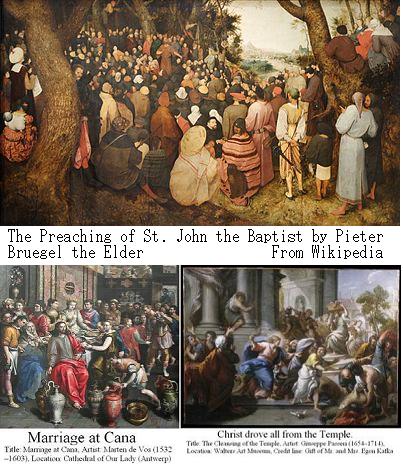 On the third day, Jesus, who had made a debut to the religious society of Jerusalem with testimony of John the Baptist in Bethany in the eleventh month of Jewish calendar around the year 28 A.D., participated the wedding in a village called Cana that was about 20 km west of the Lake Galilee together with his mother Mary and his brothers and performed the first of his miraculous signs. He turned the water in six stone water jars, each holding from twenty to thirty gallons, into wine. (John 2:1-11) The bridegroom of this wedding is said to have been Simon the Zealot, who is said to be Jesus' younger brother. It can be seen that Jesus' family also cooperated on Jesus' religious debut. According to the Gospel of John, a month later, at the Passover Feast, Jesus went to the temple with his disciples and drove away merchants from the temple. (John 2:13-25) Afterwards, he stayed in the Judean countryside with his disciples, and started the activity of baptizing the Holy Spirit. (John 3:22) ○Roles of the twelve apostles in groups of four 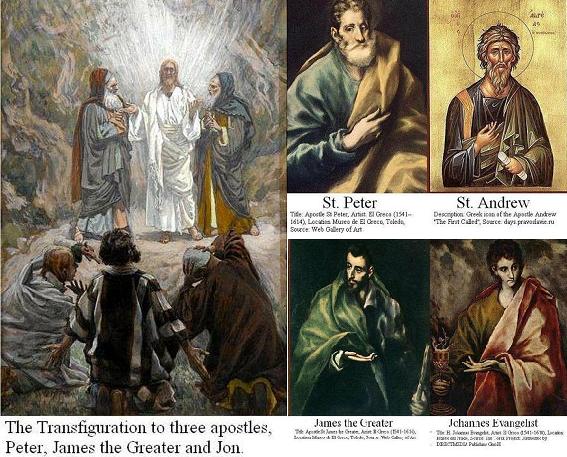 According to four Gospels under the canon of the New Testament, while all the twelve apostles became disciples after Jesus had been baptized by John the baptist in the Jordan River, the circumstances that they became disciples of Jesus are recorded only for the brothers of Zebedee, the brothers of Peter and Andre, who seem to have had been disciples of John the Baptist, and Matthew, the tax collector, and Philip and Nathanael (maybe the same person as Bartholomew of the synoptic gospels), The names of the four Gospels' twelve apostles also do not match each other. The Gospels place Peter and the brothers of Zebedee, that is, James the Greater and John, as three close aides of Jesus. It seems that including Peter's younger brother Andrew, these four people actively participated in Jesus' missionary activities. 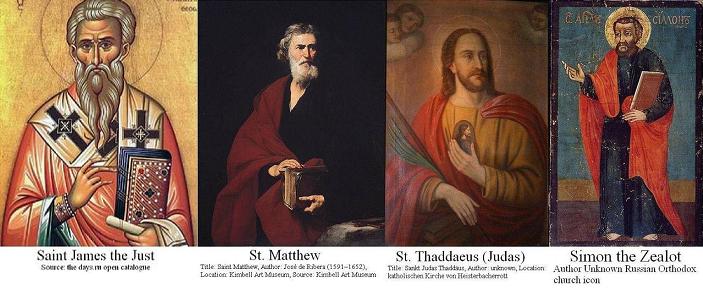 On the other hand, James the son of Alpheus (James the Less), Matthew, the tax collector and Simon the Zealot, according to Professor James D. Tabor, Chair of the Department of Religious Studies at the University of North Carolina, seem to have been younger brothers of Jesus. They, including Judas, the son of James (maybe the same person as Thaddaeus), seem to have based their activities in the temple as the legitimate lineage of priests representing both the Davidic royal family as well as a priestly Aaronic Lineage. According to Professor Tabor, James the Righteous is the same as James the son of Alpheus. Matthew, known as the author of The Gospel of Matthew, is also recorded as 'Levi son of Alphaeus' in The Gospel of Mark. Simon the Zealot and Jesus' youngest brother Simon, son of Clopas, who took over as Bishop of the Jerusalem Church after the martyrdom of James the Righteous, are the same person. Because Alphaeus and Clophas both mean the second in Greek and in Aramaic respectively and these words are presumed to refer to the second husband of Mary. He was probably the younger brother of her first husband Joseph. 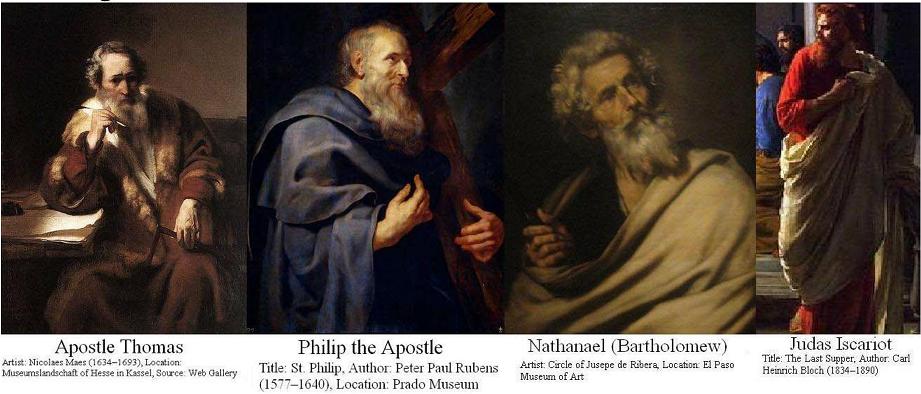 The rest of the Twelve, Philip, Nathanael, Thomas and Judas Iscariot are not given active roles in the biblical canon gospels. All of them have in common that the Gospels bearing the name of these four disciples were stigmatized as Gnosticism by Orthodox Church. As for Philip and Nathanael, the depiction of the Gospel of John implies that Jesus knew them from before. Perhaps these four had established a relationship with Jesus before Jesus was baptized by John the Baptist. The time when they established a relationship with Jesus seems to have been the same period with the contents of the Gospel of Thomas. ○Background of Judas Iscariot The Gospel of John introduces Judas Iscariot as the son of Simon Iscariot. (John 6:71) Judas's epithet Iscariot is usually thought to be a Greek rendering of the Hebrew phrase Κ-Qrîyôt, meaning 'the man from Kerioth'. Kirioth is a town in the south of Judea. It has been identified with the ruins of el-Kureitein, about 10 miles south of Hebron. (English version Wikipedia) According to the gospel of John, Judas was their treasurer. (John 13:29) 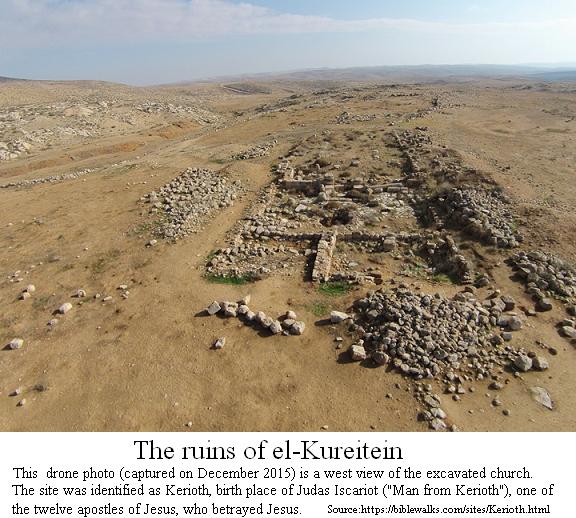 Why did Jesus choose Judas as one of the Twelve Apostles although Jesus knew from the beginning that Judas would betray him. If its answer is the above-mentioned second question itself, Judas was the greatest meritorious person who had realized the Old Testament verse which was essential for Jesus to become the Savior. Nevertheless, Jesus says in the Gospel of Mark, "The Son of Man will go just as it is written about him. But woe to that man who betrays the Son of Man! It would be better for him if he had not been born." (Mark 14:21) It has been decided by God that Jesus will be glorified through Judas' meritorious service but that Judas will be stigmatized as a traitor and will be thrown into Gehenna for ever. So does Jesus say that it would be better for him if he had not been born?! By the way, in the doctrine of Christianity, the dead go once to 'Hades' and wait for the final judgment if they ascend to 'Heaven' or fall to 'Gehenna.' Besides this, there is a concept called 'Purgatory' as a place where the dead go to in Catholicism. However, many factions of Protestant do not admit this. ○A red herring for James the Less? 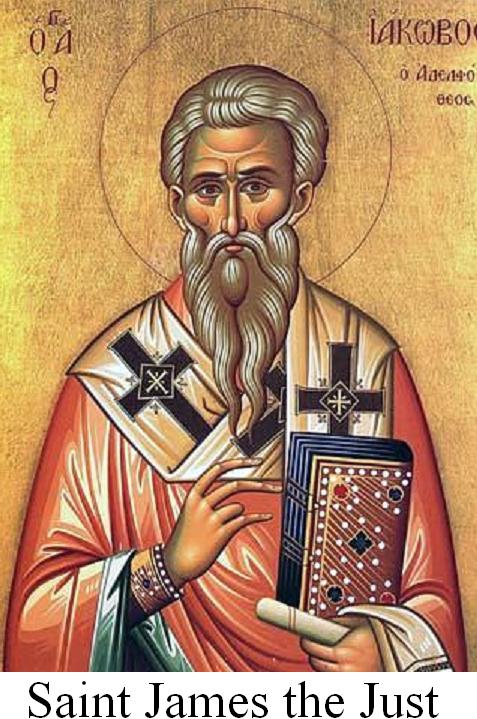 In fact Judas Iscariot's historical existence is very doubtful. While all of the Orthodox Gospels state that the fate of crucifixion for Jesus was decided from the beginning, they also convey several scenes in which Jesus is suffering before the cup of bitterness. More over, Jesus initially instructed his disciples to return to Galilee after his crucifixion. (Mark 14:28,16:7, Matt 28:7,10) However, he gave a new instruction, "Stay in Jerusalem," after the Resurrection. (Acts 1:4) In a nutshell, although it was agreed on that the new organization would be set up on the day of Pentecost in the year 30 AD, the hot negotiation for many sensitive issues, including 'how to treat Jesus and James the Less?', 'which group to mainly handle the new organization, Gentile Jews that had dominated the overwhelming majority or domestic Jews?' and so on, continued even after the Crucifixion. Meanwhile, the other disciple, the acquaintance of the high priest, followed Jesus, escorted to high priest Annas and Caiaphas, together with Peter(John 18:15), should be James the Less. James the Less seems to have taken the lead in such negotiations. If so, there is no room for Judas Iscariot coming out. The most of the plot of the Crucifixion and its theological meaning including the story of Judas' betrayal in the Gospels under the canon of the New Testament seem to have been written by James the Less himself. ○Guiding and Aiding Living Beings 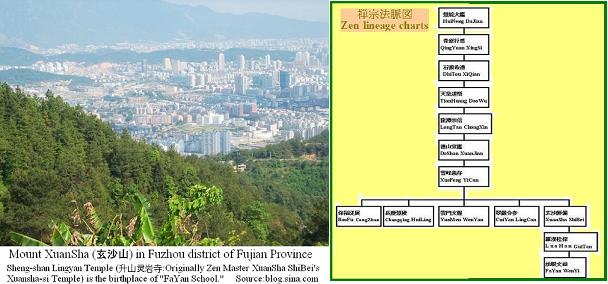 Time passed to the later period of the Tang Dynasty and the five dynasties and ten kingdoms period (907-960) in China, Zen Master XuanSha ShiBei ZongYi (玄沙師備宗一835-908), who lived at Mount XuanSha in Fuzhou district of Fujian Province, one day delivered a sermon to the congregation and asked, "'Guiding and Aiding Living Beings (接物利生)' is said to be all Buddhists' long-cherished desire, but how do you guide if you encounter a person with triple handicap, blind, deaf and dumb? How do you guide him? The blind person can't see, even if you take up a gavel or raise a whisk. The deaf person can't hear, even if you talk glibly. The dumb person can't speak, even if you ask him to speak up. But how would you guide such people? If you couldn't guide such people, then the Buddha Dharma has no effect." There is no need to say the exaggerated example such as a triple handicapped person. It is common for husbands and wives or parents and children, who eat and sleep together every day, can not communicate each other and it causes quarrel among them. More over, if people's denomination, nationality, race are different, might also happen armed disputes and international conflict. A monk, who listened to the XuanSha's preach but couldn't find answer to his question, visited another Zen Master YunMen WenYan (雲門文偃864-949), one of XuanSha's alumni, and asked instruction. Then YunMen said, "When you ask someone, you should bow to him first." When the monk bowed, YunMen poked his staff at him. When the monk drew back. YunMen said, "What, you can see it?" and urged "Come here." When the monk fearfully approached him, YunMen said "You can hear, too?!" and asked "How? Did you understand?" When the monk answered "No, I do not understand," YunMen said, "What, you are dumb, aren't you?" With that, the monk came to an insight. For one who stands at the beginning and finds out Supreme God, who dwells in all creations, in other words, who finds out his original Self, it does not matter if he or she can communicate or get mutual understanding with others any more. Because he or she has become the holy one. So, he or she is just going through all the work that he or she should do now. <To be continued> [Reference] ○《The Blue Cliff Record》 Guiding and Aiding Living Beings 【Pointer】 The established methods of our school are thus: they break two into three. (垂示云:门庭施设,且恁么,破二作三。) For profound talk entering into principle, you too must be piercing and penetrating. (入理深谈,也须是七穿八穴,) Taking charge of the situation, he hits home and smashes to pieces the golden chains and the hidden barrier. (当机敲点,击碎金锁玄关。) He acts according to the imperative, so that he obliterates all tracks and traces. (据令而行,直得扫踪灭迹,) Tell me, where is there confusion? (旦道淆讹在什么处?) For those who have the eye on their forehead, I bring this up to see. (具顶门眼者,请试举看。) 【Case】 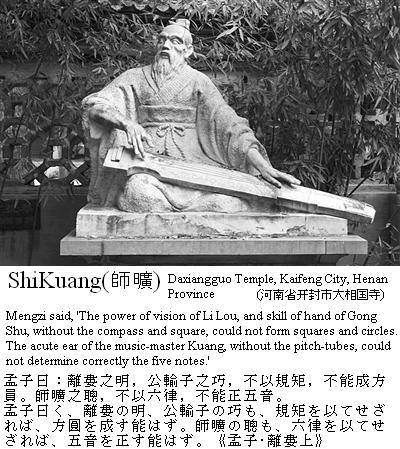 XuanSha(玄沙), teaching the community, said, "The old adepts everywhere all speak of guiding and aiding living beings. Supposing they encountered three kinds of sick person, how would they guide them? With a blind person, they could pick up the gavel or raise the whisk, but he wouldn't see. With a deaf person, he wouldn't hear the point of words. With a mute person, if they had him speak, he wouldn't be able to speak. But how would they guide such people? If they couldn't guide these people, then the Buddha Dharma has no effect." A monk asked YunMen(雲門) for instruction on this. YunMen said, "Bow." The monk bowed and rose. YunMen poked at him with his staff; the monk drew back. YunMen said, "You're not blind." Then YunMen called him closer; when the monk approached, YunMen said, "You're not deaf." Next YunMen said, "Do you understand? " The monk said, "I don't understand." YunMen said, "You're not mute." At this the monk had an insight. 【Verse】 Blind, deaf, mute- (盲聋喑哑) Soundless, without any adjustments to potentialities. (杳绝机宜) In the heavens, on earth- (天上天下) Laughable, lamentable. (堪笑堪悲) Li Lou (離婁: a Chinese legendary figure with clairvoyance) can't discern the true form; (离娄不辨正色) How can Shi Kuang (師曠: a native blind musician in the Chinese Chunqiu dynasty) recognize the mystic tune! (师旷岂识玄丝) How can this compare to sitting alone beneath an empty window! (争如独坐虚窗下) The leaves fall, the flowers bloom-each in its own time. (叶落花开自有时) Again XuanSha said, "Do you understand or not!" (复云、还会也无) An iron hammer head with no hole. (无孔铁锤) 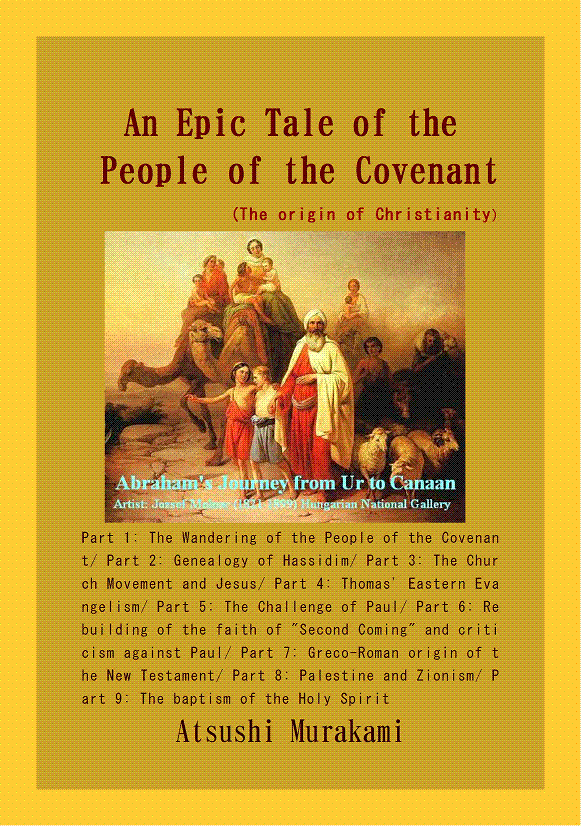 ○What is "Baptism with The Holy Spirit"? According to the dialectic of the Gospel of John, 【Thesis】"A man can possess eternal life through accepting testimony of the Son of man and being baptized by him." (John 5:24) 【Anti-thesis】But "The one who comes from the earth cannot accept the testimony by one from heaven." (John 3:32) How then can a man possess eternal life? 【Synthesis】"If you want to be baptized with the Holy Spirit, you can just go back to the word which was with God in the beginning (John 1:1) and certify that God is truthful. (John 3:33)" When he said, "You are Huichao," Zen Master Fayan thrusted vivid Self in Huichao in front of his eyes. Purchase here ○One world:The aim of SEAnews ◆Recruitment of Ad-SEAnews CanvassersYour Comments / UnsubscribeSEAnews TwitterSEAnews MessengerSEAnewsFacebookSEAnewsGoogleSEAnews eBookstoreSEAnews eBookstore(GoogleJ)SEAnews world circulation |
|
[Your Comments / Unsubscribe]/[您的意见/退订]/[ご意見/配信停止]
Please do not directly reply to the e-mail address which is used for delivering the newsletter. 请别用递送新闻的邮件地址而直接回信。 メールをお届けした送信専用アドレスには返信しないで下さい。 |